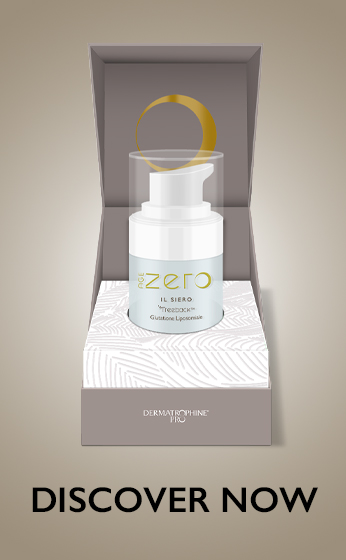EVEN THE SKIN GETS STRESSED

Just like the mind, skin can also be subjected to stress: it affects all skin types, at all ages, so the skin can become more sensitive for various reasons and at any stage of life, from childhood to old age. In general, the reasons can be various: smoking, poor diet, stress from hectic periods resulting in lack of sleep or environmental pollution.
How does our skin react to all of this? Why does it actually become more sensitive? First of all it is important to understand the natural defenses available to our skin and the factors that weaken it, in order to be able to better decode signs of sensitivity. Firstly, skin has its own natural protective barrier (the corneum stratum), which acts limiting water loss by preventing dehydration. The corneum stratum is made up of skin cells and epidermal lipids and on its surface there is a protective hydrolipidic acid layer: this combination has a slightly acidic pH value (5) which aims to keep skin flora healthy and to maintain the process of desquamation and to neutralize alkaline substances such as the soaps we use every day. If pH of the skin is altered, its barrier function is no longer effective: defenses are weakened, causing an increase in trans epidermal water loss (with consequent skin dryness) and the penetration of external irritants (bacteria, chemical substances, allergens, etc.); this way skin becomes more sensitive and symptoms such as redness and scaling may appear on the face and body. As a matter of facts, sensitive skin manifests itself through
1) visible signs: erythema, redness and irritation, scaling, swelling or roughness;
2) sensory signs: itching, tension or burning. If the external irritating factors join the "internal" ones, the effect is amplified: hormonal imbalances caused by stress or by specific life events such as pregnancy, the menstrual cycle, puberty or menopause help to reduce effectiveness of the skin's barrier function, as well as dehydration, profuse sweating or lack of water, obviously very frequent situations during the summer.
So what can you do for sensitive skin?
Take notes of the following six tips.
1. Change your daily habits when you wash: reduce the temperature of the water, don't spend too much time in the shower or in the bath and use gentle surfactants and shower oils by patting your skin until dry.
2. Eat better: increase the consumption of food that’s rich in antioxidants and Vitamin C and low in carbs and saturated fats to help stressed skin regenerate and become healthy again. Drink a lot and check if you have food allergies or intolerances.
3. Reduce stress: learn to keep stress under control by practicing sports, yoga or other relaxation and meditation techniques.
4. Anticipate the problem: Sensitive skin is usually only taken care of when the first warning signs appear. Instead, get used to taking care of your skin regularly to reduce the risk.
5. Gently cleanse skin: many cleansers remove make-up on our skin but also the hydrolipidic film we mentioned at the beginning. Look for products that contain delicate surfactants, which protect the skin's natural defenses and prevent dehydration.
6. Differentiate the cleaning of each area of the body: for sensitive and dry body skin, cleansers that strengthen the barrier function and protect against loss of hydration are better, for the face, which has more sensitive skin, choose a delicate and specific cleanser and finally choose one specifically for the hands, which are subjected to more frequent washing and more exposed to external agents.










